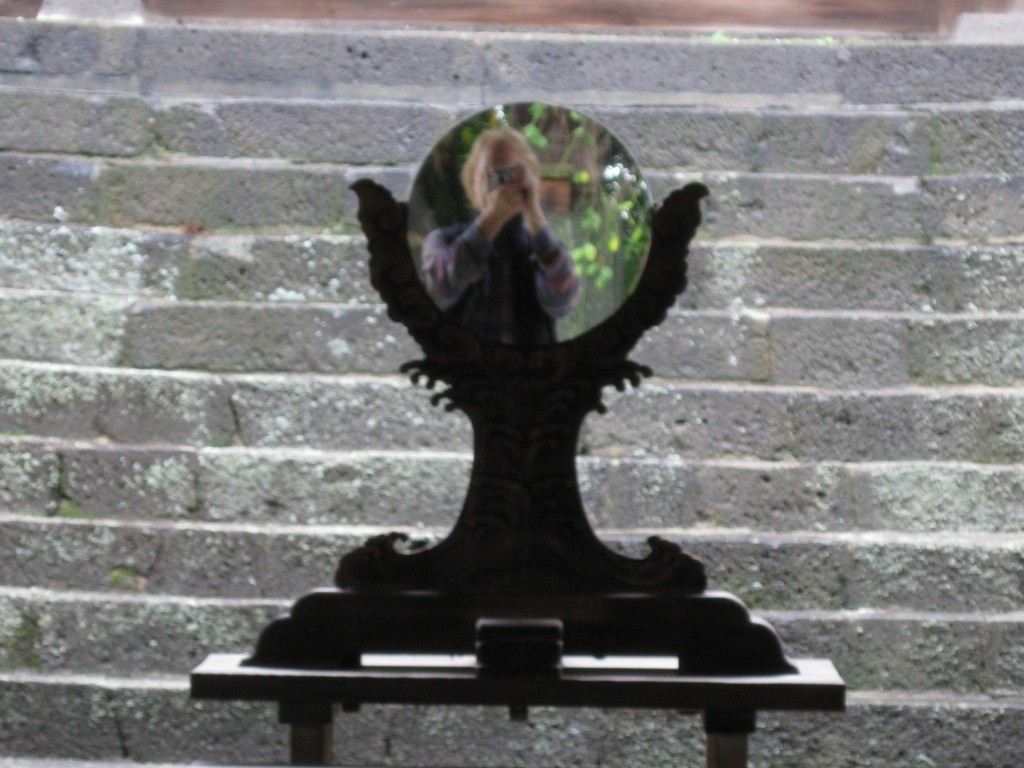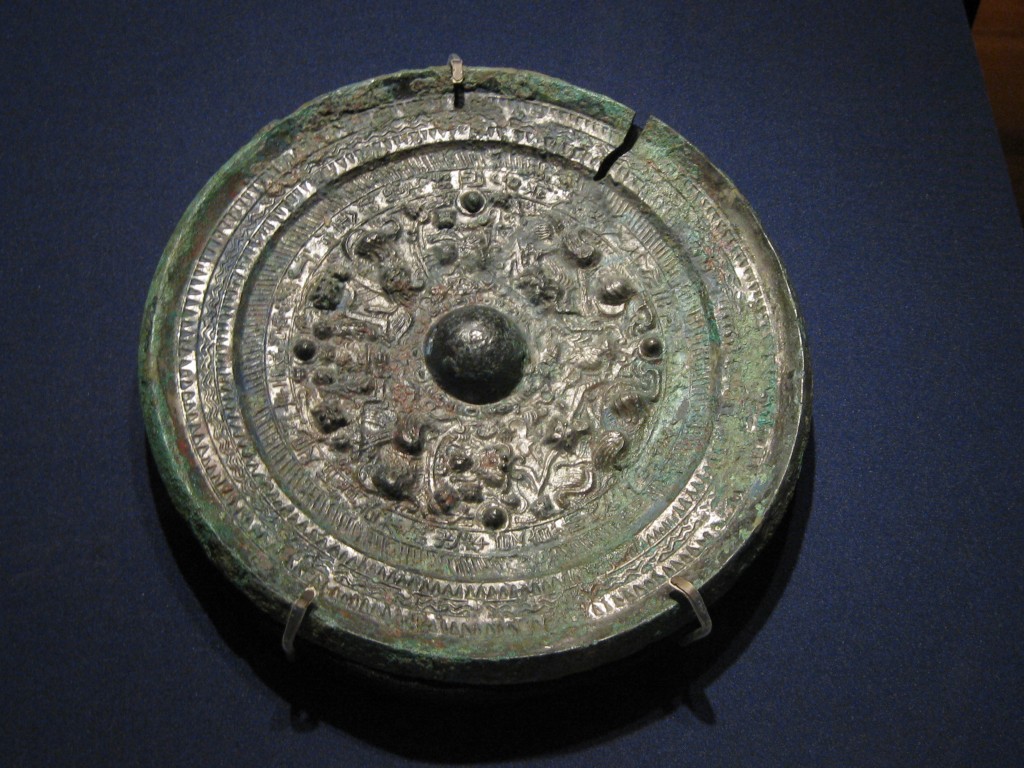
The mirror prompts reflections on the interface between the physical and the insubstantial
In one of his talks, the late great Alan Watts talked of detachment and mentioned that in Hinduism yoga practitioners are advised to observe without being attached. “Keep your mind like a mirror, pure and clean, free from dust, free from flaws, free from stain, and just reflect everything that goes on but don’t be attached.” (Alan Watts podcast; ‘Sex in the Church’)
Buddhism uses the imagery of mirrors too, and talks of the need to keep one’s mind clean of the dust of the world. It set me thinking about how this applies to Shinto, where the mirror is a symbol of the spiritual world – of purity, in a word. A concern with purity lies at the heart of Shinto, but what is the reason for that?

Rocks open onto another world, one that is subject to decay
Human beings have for long thought of the world in terms of spirit and matter. The ghost in the machine, as Arthur Koestler put it. We live in a material world, subject to decay, deterioration and death. The world of the spirit by contrast is everlasting, for there is no physical matter. It’s pure spirit..
The distinction between the pure world of the spirit and the polluted world of the physical is one common to all religions, but it’s particularly strong in primal religions like Shinto. In fact, it’s so strong that it outweighs moral concerns. Nothing else matters but the pure world of the kami and the polluted world in which we have our being. Striving for the pure while overcoming the polluted is the name of the Shinto game.
In this way the significance of rocks and mirrors in Shinto becomes clear. Rocks are the closest matter comes to permanence. It’s why kami descend into rocks and use them as a vessel for manifesting themselves. They give a sense of solidity to that which has no substance.
Mirrors act in a similar way by reflecting what is in front of them. Look in the mirror and you see yourself as you truly are. Physical. Polluted. And subject to decay. Renewal and rites of purification are the remedy. It’s a key element of Shinto, and it’s an element Shinto shares with Hinduism and other primal religions. Purity is the concern, not morality, for humans have an innate sense of right and wrong and a pure heart is needed to see that. It’s not a case of cleanliness being next to godliness. Cleanliness is godliness!

Reverse side of a bronze mirror, symbol of Shinto. If you don't polish and keep it pure, it won't shine.

Leave a Reply